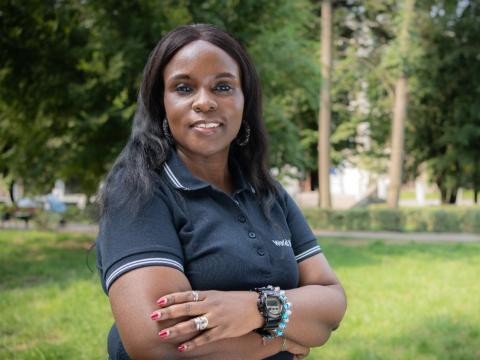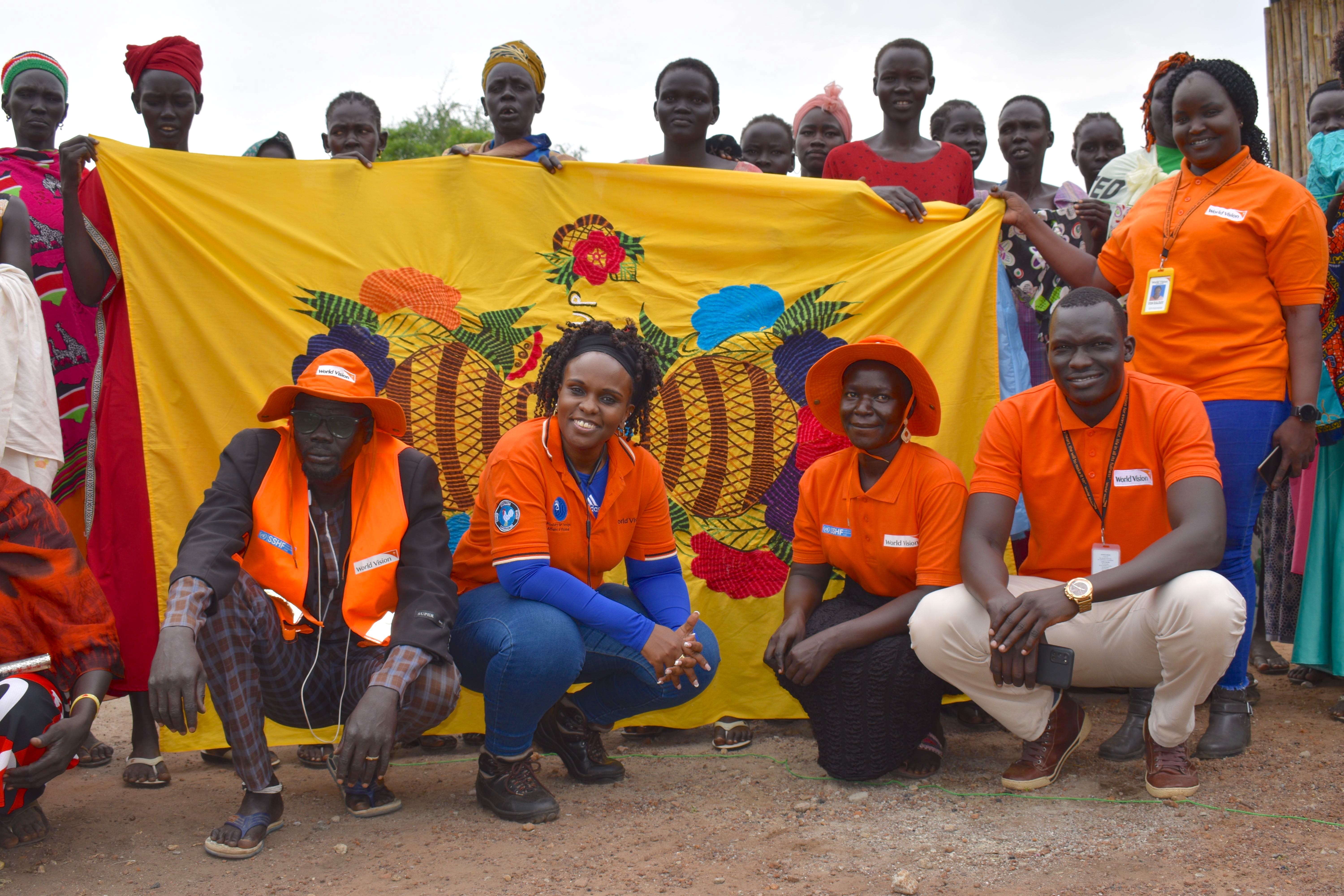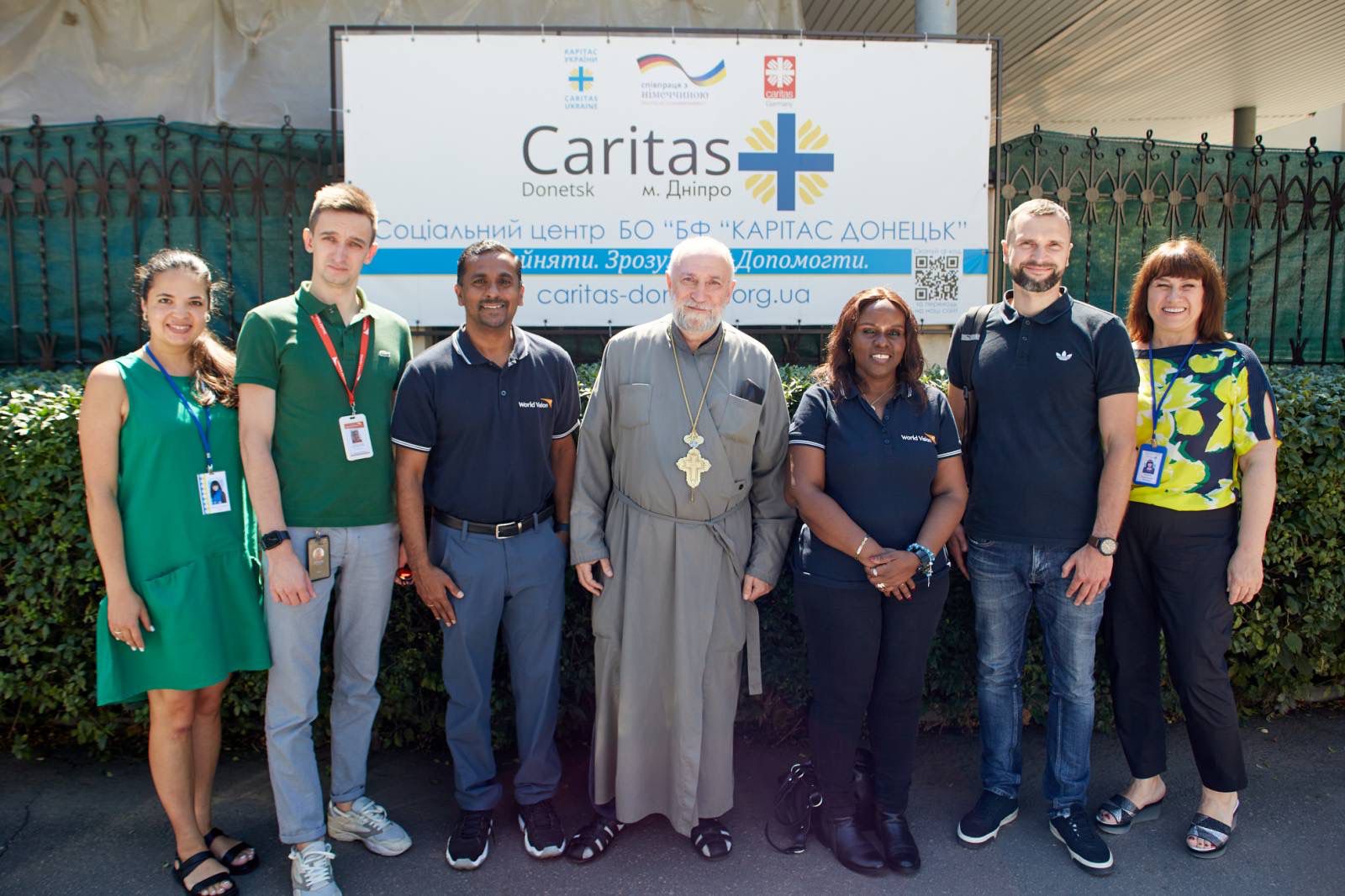Enid Ocaya: Bringing leadership lessons from refugee response in Uganda and South Sudan to the Ukraine crisis

I had never thought of being a humanitarian. I stumbled upon the humanitarian industry by chance, and I have never looked back. I found my calling. I started in development work which lasted for ten years.
I joined World Vision Uganda in 2012 as a Disaster Risk Reduction Manager with Humanitarian Emergency Affairs (HEA) duties.
Uganda was coming out of a war of 20 years waged by the Lord’s Resistance Army (LRA) in Northern Uganda and that part of the country was ready for recovery programming.
However, to the dismay of everyone, the countries bordering Uganda started experiencing war resulting to an unprecedented influx of refugees into the country begun almost immediately after the LRA war.
It started with influx of Congolese refugees in the western Part of Uganda in 2012 while I was at the helm of starting World Vision’s first ever refugee response program in Uganda.
In December 2013, conflict in South Sudan broke out and World Vision started another refugee program in the West Nile Region in Adjumani District.

This started off well, until there was an escalation in South Sudan in July 2016 that led to the establishment of Bidi Bidi Refugee Settlement in Uganda’s Yumbe District that eventually hosted over 200,000 refugees.
My most unforgettable experience was providing hot meals for a daily influx of over 9,000 refugees and non-food-items and re-settle them areas that were originally bushland.
At the time that this program started, the key skills/abilities that mattered in August 2016 were the ability to work for long hours, endure a complex environment, build relationships, and take on any role that needed to be executed in real time.
A humanitarian need to think out of the box and get out of their comfort zone.
Everyone who have worked and visited Bidi Bidi were never the same in their lives. I was proud of how the teams rallied together to give the refugees the best possible experience under the circumstances.
World Vision was the organization of choice to provide refugees with their first hot meal after days of travelling to seek refuge in another country.
To thrive in this industry, one must genuinely search their hearts and see if this kind of work is meant for them.
We were committed to do whatever it took to enhance safety and dignity and hopefully put a smile on people’s faces when they began to interact with us.
Personally, that experience changed me. It taught me to do the best within my means to serve the people in need, since at that time, we may be all the have to look up to.
During the implementation of that program, a miscommunication led to the refugees holding one staff member hostage. At that time, I was Officer-in-Charge for the Response Director.
Serving people in need is one thing, but having to rescue our own staff took me to another dimension. I had to engage all options that would enable the release of that staff member since time was of the essence.
Eventually, he got released, and treated at a local clinic for injuries sustained. I waited for his wife to arrive at the clinic and spoke to her before seeing him in his sedated state. She was a young wife, and my heart went out to her.
As Operations Lead it is necessary to have strong skills that can enable you to do your work and lead the teams as required. I have learnt to listen with my heart and my intuition, to be empathetic and think through everyone’s journey around me.

All the technical skills in the world will not matter unless you are able to combine them with your heart to do your work well. This includes everyone around me, the people we serve, our team and our direct supervisors.
One key attribute required of humanitarians is the resilience of self, of systems, of thoughts and of habits. Even the best laid plans can go wrong, and how are you able to bounce back in real time is key to enabling everything and everyone around you to bounce back.
Without resilience in the humanitarian field, one cannot survive for long.
I believe that not everyone can do this kind of work. It involves being away from your family for long periods, living alone, having to adapt to different places, cultures, food, people, and more.
To thrive in this industry, one must genuinely search their hearts and see if this kind of work is meant for them. Humanitarian work is a very rewarding experience but if not managed well, can take a toll on one’s wellbeing.
After Uganda, I became the Zonal Programme Manager and Humanitarian Emergencies and Cash Programs Manager in World Vision South Sudan before moving to my current role as Deputy Operations Director for the Ukraine Crisis Response.
In every job, my goal was always consistent - to make a positive difference in everyone’s life that I meet using both personal and professional experiences accumulated over the years.
When all is said and done, I would still be a humanitarian in my next ten years.
Blog by Enid Ocaya, Deputy Operations Director I Photos by Chris Lete and Eugene Combo, Communications Consultants